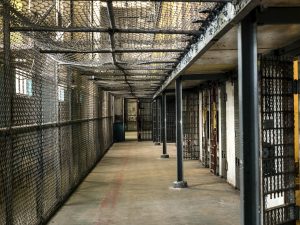Between 1989 and 2021, the National Registry of Exonerations recorded 2970 exonerations in the US, 161 of which occurred in 2021 alone. Wrongful convictions arguably represent the most egregious form of miscarriage of justice in the criminal legal system, and their consequences are far-reaching: Exonerees face immense difficulties in finding employment, reestablishing their sense of belonging, and even securing housing. Wrongfully-convicted persons’ psychological traumas often impede their post-prison reintegration, including in the family setting. In a recent paper, I studied the shifting social processes through which the experience of wrongful conviction harms family life over time. Drawing on in-depth interviews with 15 exonerated men, I explored what I called the “relational costs of wrongful convictions”: The harms that men’s familial relationships sustained at 1) the moment of wrongful conviction, 2) during the period of wrongful imprisonment, and 3) in the men’s post-prison lives. In examining how these costs shift and accrue over the course of participants’ wrongful conviction journeys, I reframed the familial disruption associated with wrongful convictions as a fluid social process, rather than primarily the product of exonerees’ psychological traumas.
I found that the moment of wrongful conviction represented an experience of shared trauma that was borne equally by participants and their family members. Benito (a 52-year-old, Hispanic exoneree who served 30 years of wrongful imprisonment), for example, described this moment as a “family affair of horror” that he and his family members “actually experienced together.” For socioeconomically-disadvantaged family members (most of whom were also people of color), the shock of witnessing a loved one get wrongfully convicted was exacerbated by the helplessness of being unable to offer much in the way of financial support. Steve (a 45-year-old, Black exoneree who served 26 years of wrongful imprisonment) captured this pain when he said, “See, your family can believe you, but they don’t know what to do and they only have so many resources.”
Despite the force of participants’ familial support when they were wrongfully convicted, the sense of solidarity that the men shared with their family members faded over time as many of them endured their prison sentences in relative isolation, sharpening the pain of their wrongful imprisonment terms. Even privileged participants like Tim (a 49-year-old, white exoneree who served 17 years of wrongful imprisonment) reported that “when an innocent person goes to prison, their family, their friends, their loved ones, strangers, go to prison with them.” Many of these more affluent participants nonetheless retained their ties with family members on the outside, who continued to advocate on their behalf and offer them both material and emotional support. For less privileged men, on the other hand, wrongful imprisonment represented a period of radically-diminished support as their family members grew weary of supporting them. For men like Alfred (a 46-year-old, Black exoneree who served 17 years of wrongful imprisonment), the hardest part of his wrongful imprisonment was “the absolute loneliness of being there” with no support on the outside.
When participants later reentered society after serving years in prison as innocent men, they found it very difficult to rebuild the few familial ties that had survived their prison terms. Although exonerees may comparatively be better off than individuals on parole in terms of the social support that they receive when they are released from prison, participants struggled to overcome the feelings of hostility they had toward family members who they felt had not adequately supported them when they were incarcerated. The men experienced the relational costs of wrongful convictions in reentry even more sharply because—unlike individuals released on parole—they felt entirely abandoned by the state when they were released, and they were moreover forced to confront familial challenges generated by the single unique pathway to state support that was available to them as exonerees: Financial compensation. Benito, for example, felt that people in his social circle began to show their “true colors” when he received compensation for his wrongful conviction, and he ultimately had to “cut the umbilical cord” and move to an entirely different state to get away from his family because of conflict over money. Familial tension over compensation underscored how conflict during reentry could be traced back to rifts that emerged during participants’ period of wrongful imprisonment. Highlighting the accruing and evolving nature of the relational costs of wrongful convictions, Samuel (a 38-year-old, Black exoneree who served 15 years of wrongful imprisonment) expressed frustration toward family members who he felt “gave up” on him while he was incarcerated but somehow now expected him to spend his money on them. In his words, “that drive a wedge between people.”
Importantly, many men who felt abandoned by their family members during their wrongful imprisonment were still trying to rebuild their relationships with these relatives when they were released, despite their pessimism about ever being able to restore the relationships fully. Reconciliation can in fact be possible for exonerees under these circumstances, and restorative justice programs that support exonerees’ efforts to reestablish their familial ties following wrongful conviction and imprisonment may be particularly valuable. Although I focused on exonerees’ perceptions of their family members’ response to their wrongful imprisonment, we must learn more about the decisions that may motivate family members to distance themselves from (or remain supportive of) their loved ones during periods of wrongful imprisonment. Above all, therefore, my findings point to the need to explore the symbiotic harms of wrongful imprisonment more fully.
Janani Umamaheswar is an Assistant Professor in the Department of Criminology, Law, and Society at George Mason University with research interests in punishment and social inequality. You can follow her on Twitter @jananiu.


Comments 1
charlie — October 16, 2024
good evening i am 14 years old and i go to vandyke upper school in the UK and i am doing a project and we had to pick a term about something we lik and i chose this if you could give me some more info that would be great all the best